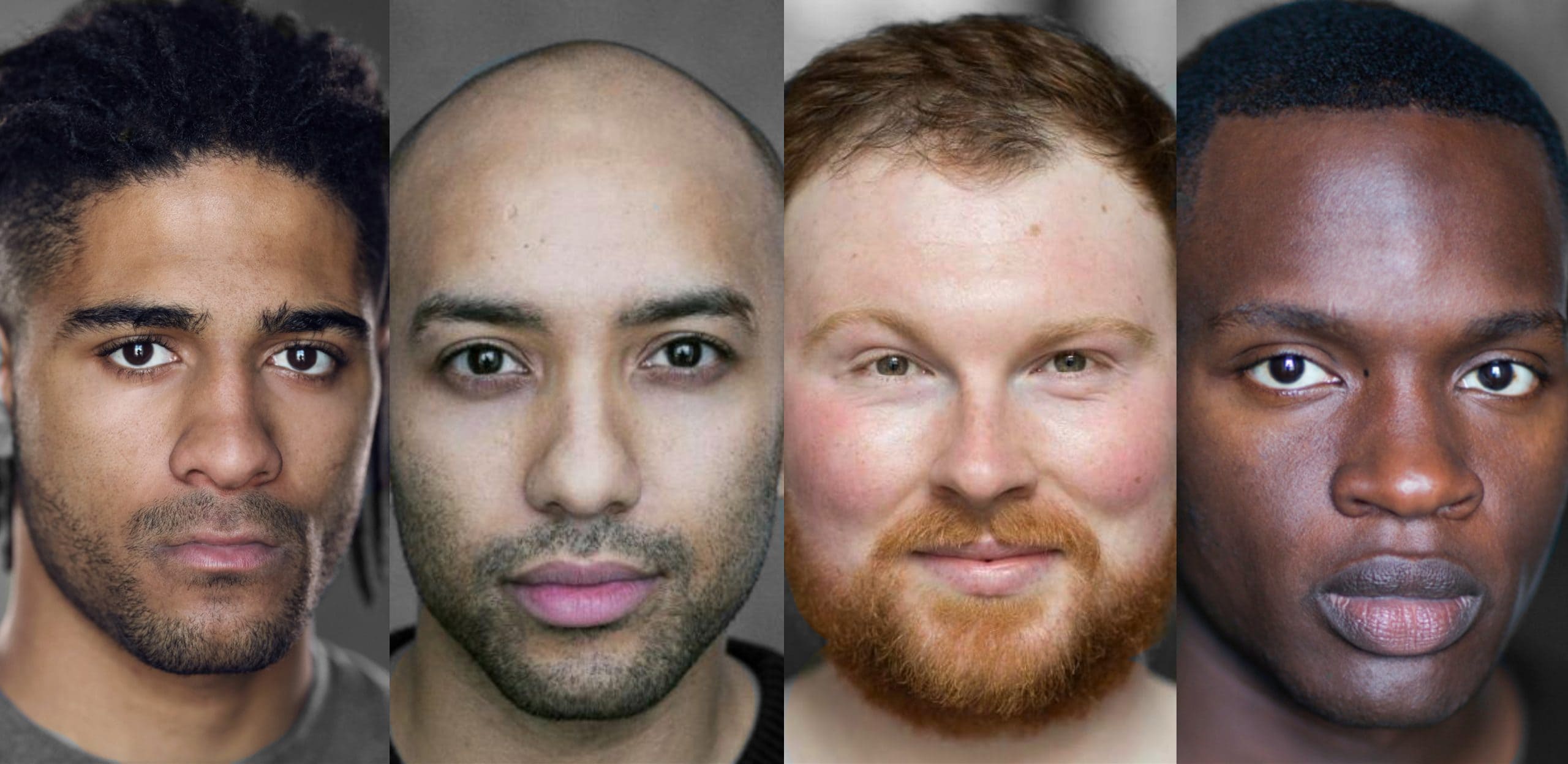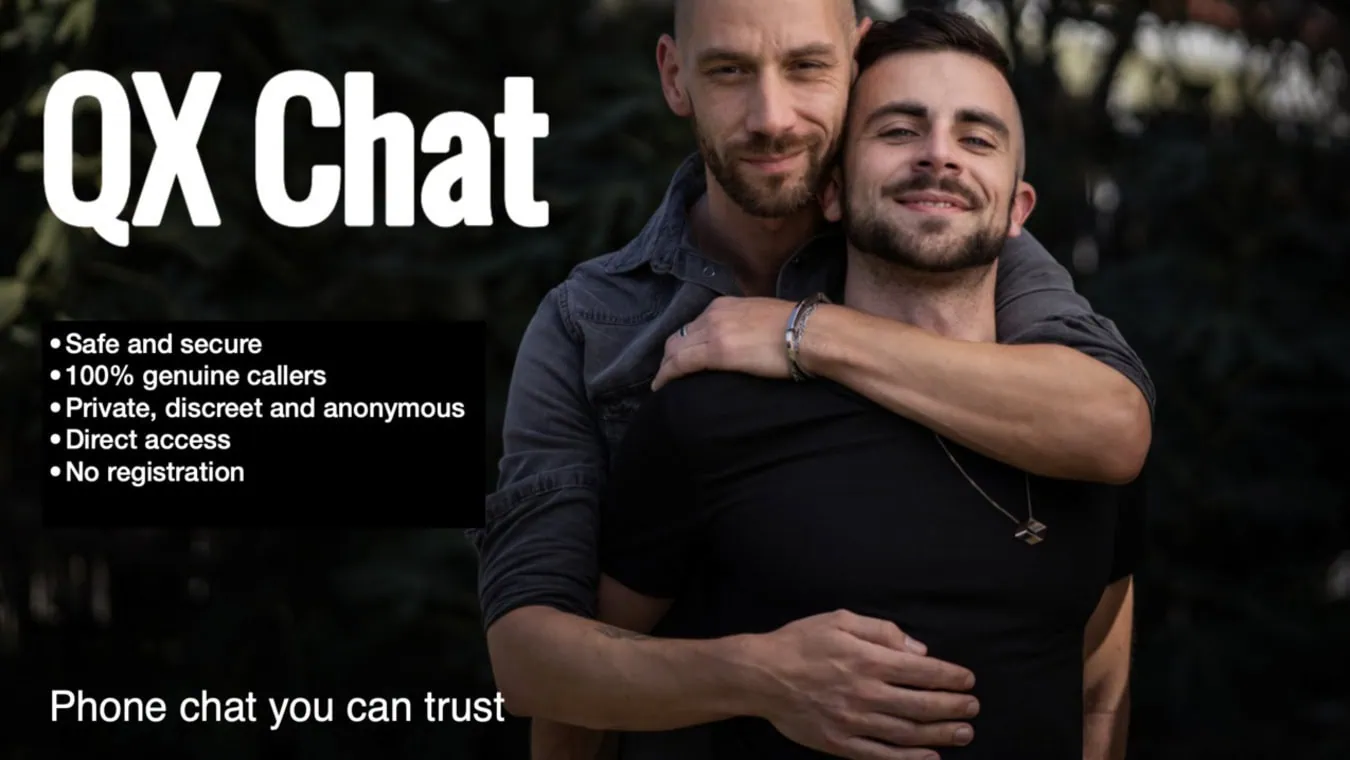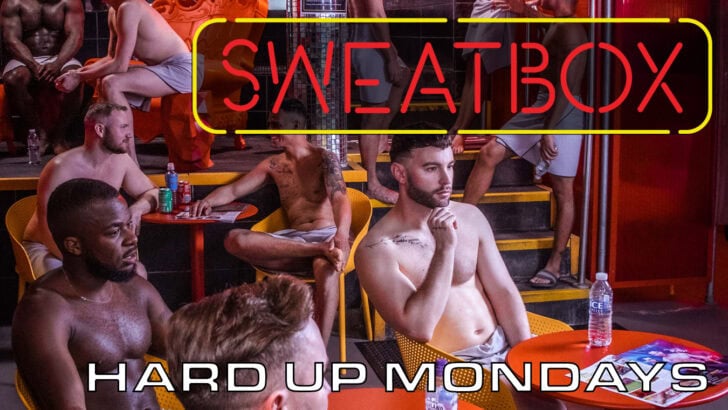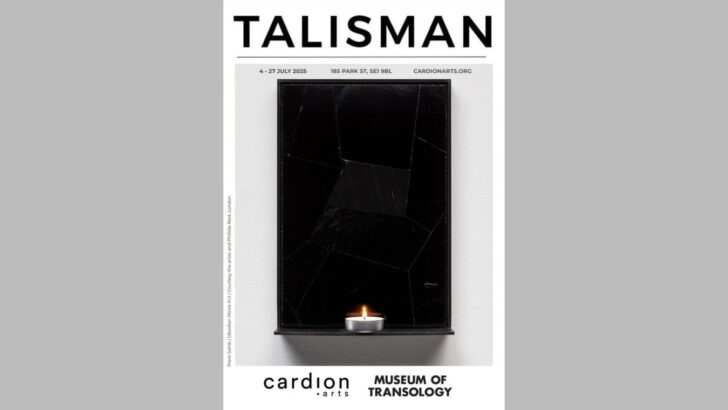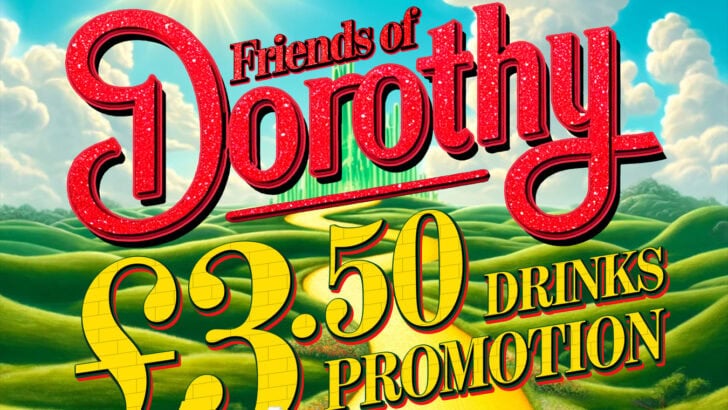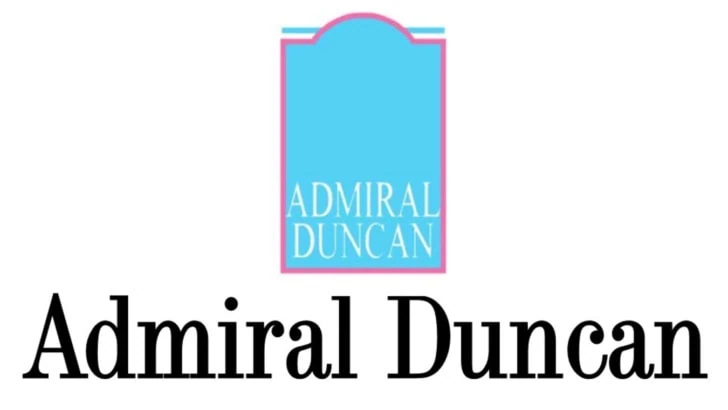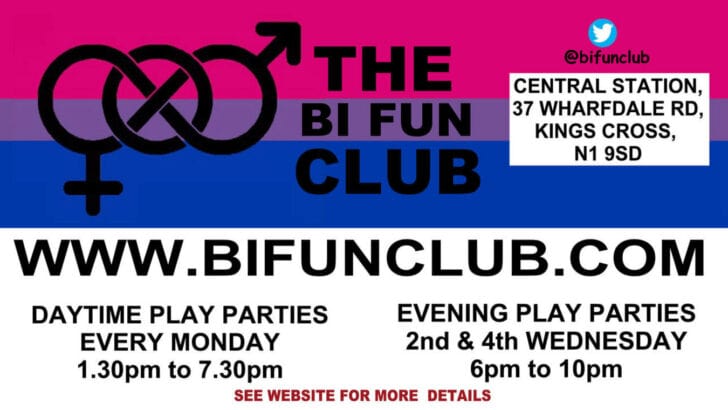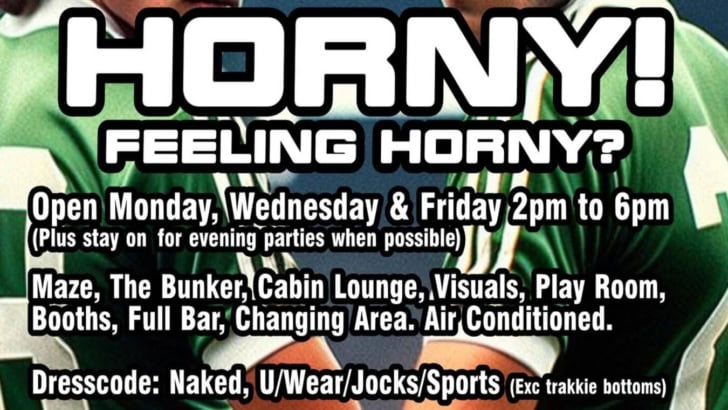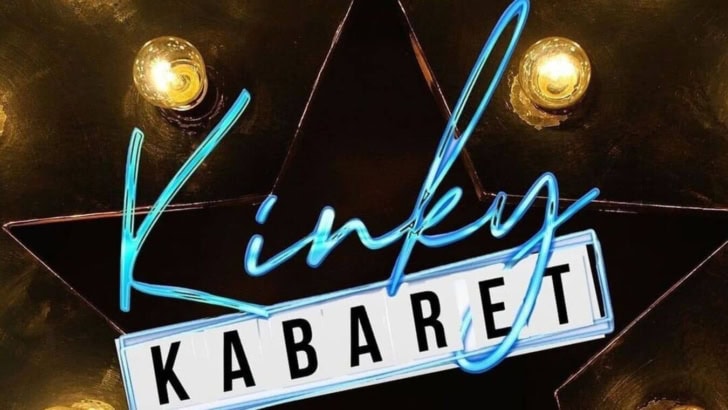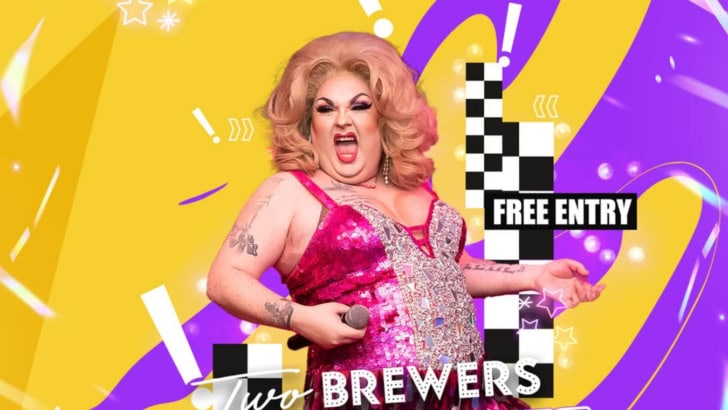As gay men, the open relationship is not an alien concept. According to a 2016 survey of gay British men, four in ten of us have been in them. That same year, Jake Brunger’s witty and comic Four Play made its London debut that tackled the issue head-on. Exploring what sex and commitment mean to us in the 21st century, this month the work returns to the stage.
Taking over the newly-refurbished studio space of Above The Stag, this story of modern romance and the pitfalls of open relationships pulls up its sleeves and gets elbow-deep into the muddied waters of commitment and faithfulness. In the run up to the play’s opening this week, Ifan Llewelyn sat in on rehearsals and caught up with the cast to discuss what the play has to say about non-monogamy, male desire and the stigma surrounding being open.
Declan Spaine.
I play Michael who’s in a relationship with Andrew. They’re in an open relationship. He’s the propositioned by Rafe and Pete. For him, it’s more about a realisation about what he has in his life and what makes him comfortable. What he really wants.
Marc MacKinnon.
I play Andrew. He’s been in this relationship with Michael for three years, quite happily. They have these rules and play with that idea of a modern gay couple. Having an arrangement so that they are monogamous, but open with a set of rules. Things don’t quite go to plan for the two of them, and we discover how faithful people can be as the show progresses.
Keeran Blessie.
I play Pete who’s a closeted commitment-phobe. He’s afraid of intimacy, and want his bread buttered on both sides. He also has some secret kinks. It’s been interesting to play him, being dynamic and dominant but also wanting to secretly be cheekily submissive.
Ashley Byam.
I play Rafe and he’s been with Pete for seven and a half years. Since university. Pete is his first love, and he’s never been with anyone else. He discovers his sexuality with Pete since they were both in the closet at university. He charts how much a person is willing to sacrifice to maintain an illusion of what happiness is to everybody else.
This is very much a story of modern romance. Do you think we might be experiencing a crisis of romance at the moment?
M.It depends on whether you’re talking about intimate relationships or just sexual relationships. There’s such a wide spectrum of relationships, as there should be. I think the people in this production are flirting with ideas of what it means to be in a romantic relationship, and what it means to be in a sexual relationship. How the arrangements between them play out. The arrangement that Andrew and Michael have is on one side rules for their romantic relationship and rules for their sexual relationship.
A.Trying to maintain romance in a non-monogamous relationship, how do you do that?
K.It’s not really about the depth of romance, but rather about the discovery of romance. I don’t think the queer romantic experience has been documented enough. What’s beautiful about this play is that it’s trying to find what that intersection is between being completely open, polyamorous and wanting to transgress these normative boundaries, but also existing in a society with all these normative rules and wanting to participate. What the play does is explore how we navigate these relationships. We discover what romance means to an LGBTQ+ individual.
Why do you think queer people are drawn to less-normative relationship structures?
A.There’s a thing about doing things that are seen as ‘heteronormative’. They have that and we have this. We’re able to still have this intimacy, but also go and do what you want to do outside the bounds of the relationship. There’s such a stigma around non-monogamy. It’s all about having a family, a dog and so on.
M.I personally think, as a queer individual, we’ve spent so much time outside of a normal sphere. Why shouldn’t we be able to make up our own rules? Who’s to say what normal is? If I want to live the way I want to live, I’m going to do it. If anyone judges me for it, that’s on them.
D.We talked a lot about the world ‘perception’ in discussions of this play, and I think there’s a common-held perception that “this is how a relationship should be”. As someone comfortable pushing their boundaries, I’m less likely to fall into what everyone feels I have to do. There’s more of a willingness to try. A lot more people would be up for it if they were free to try it.
K.We’ve always existed as a counter-culture. Now we are given an opportunity to participate in the main culture. But what does that look like? Well, some of our culture has been adopted into the main culture so we are welcome. But exactly how welcome are we, really, as ourselves? We still have to shapeshift and code shift in order to exist in heteronormative spaces and to make our lives seem acceptable.
Statistically, it’s men in same-sex relationships who are open. Why do you think that is?
K.Being horny? Let’s get down to the brass tax.
A.It’s something that’s often put out there. Women aren’t as sexual as men. But that’s not true. The problem is that we still hold on to the rules and social conventions. The man is always sexual, and the woman is the home-maker. No. I know women who are just as open and curious as any man, but for them, it’s taboo to say that.
D.It’s hard to un-learn that behaviour that’s drilled into you at school, at home.
M.Everyone’s just trying to piece their own puzzle together. You can take the pieces and use them as you’re instructed, or you can use them and create a new image. Trying a lot of new experiences means having a lot of new partners. Don’t limit yourself.
There’s a lot of drama that spirals out from these two relationships being or becoming open. Is that always destined to happen?
K.Absolutely not. It comes down to the key component of communication.
A.If you have communication and honesty in place from the get-go, the conversation around opening the relationship won’t be an issue. That leaves space for someone to say “Actually, I don’t want to do that.” and that’s fine.
What do you hope people take from this play?
D.One of the hardest things to do is, to be honest with yourself. Be honest with what you want in life. Question your choices. You know all those little lies you tell yourself.
A.I want people to come enjoy it, and know that it’s not a judgement on anyone and what they choose to do in their relationships. People will be watching this and seeing the relationships that they’ve been in.
M.This is the experience of four men, not the experience of every gay man. If anyone can recognise themselves in the play, that’s great, but even if someone sees it and can’t relate, that’s okay as well.
K.I hope people will walk out from the show and dare to burn in the truth of what they need. To go out and recognising they have needs that they’re not speaking out about. These four people are daring to exist in that space.
Four Play is playing at Above The Stag Theatre, 72 Albert Embankment, Vauxhall SE1 7TP ‘til 22nd February. QXTickets.com
Stay in touch with QX Magazine on Twitter
Check us out on Instagram
QX Magazine App Updated: At iOS & Android Download FREE. Improved graphics. Convenient digital magazine experience. App and website integration for when you’re on the go!
READ MORE related to ‘Four Play’ at Above The Stag Theatre:
